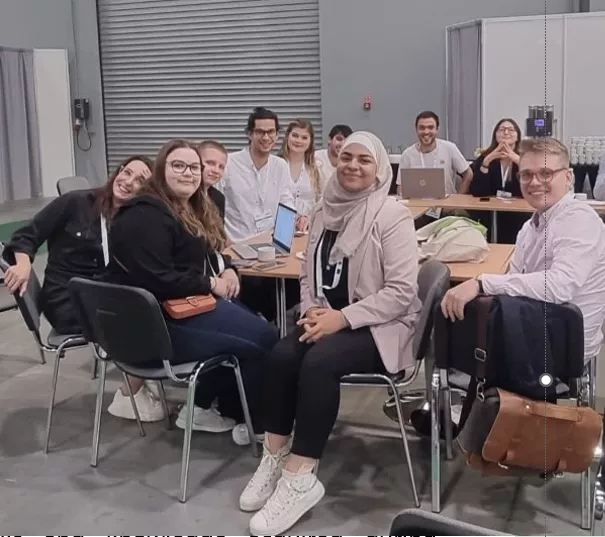Summary
Initiated by rural youth from seven EU countries and backed by the European Association of Rural Leaders (ELARD), the RURBEST project aimed to empower and connect rural youth with policy-makers.
Working within the European Rural Parliament (ERP) and other entities, the participants advocated for rural development. The 2022 ERP gathering in Kielce, Poland, attended by over 350 participants, where these youth led policy workshops and contributed to the ERP Manifesto later presented in Brussels.
The project also enabled direct dialogues between the youth and various Brussels-based European and international institutions.
Results
In all its phases, this initiative heavily depended on the active participation of youth. The pivotal role of the ten young coordinators was instrumental. They were involved in project planning, participant selection, and event organisation. They then initiated dialogue with other youngsters, which resulted in another 40 participants joining the initiative.
By actively participating and being recognised for their efforts, participants felt more empowered and confident. The project also directly improved participants' knowledge, language skills, and digital abilities.
One of the big outcomes of the project was that participants felt more motivated to get involved in the future of their communities through political and democratic activities. During these exchanges, participants shared their concerns and suggestions for the future of rural areas.
Ideas included supporting rural business ecosystems, creating community centres to build rural social networks, ensuring access to affordable housing and land for aspiring farmers, and establishing international and intergenerational mentorship programs to share successful rural development models.
Resources
Documents
Context
This Erasmus+ project aligns with the European Commission's focus on rejuvenating European democracy, with a specific emphasis on young people from diverse backgrounds. Evidence indicates that many rural communities face limitations in terms of resources and funding for civic engagement programmes, which can impede the development of youth leadership and participation.
The ERP is a collaborative effort involving 70 grassroots organisations from across Europe, all dedicated to enhancing rural areas. The context of their international conference was an excellent opportunity to empower rural youngsters to participate in public debates, enabling them to apply the skills and knowledge acquired during capacity-building activities of the project.
The project facilitated the active and structured inclusion of youth voices, concerns, and ideas in both the declaration and manifesto, ensuring their active participation in shaping the future of rural Europe.
Objectives
The project goal was to support young people from rural areas in learning through participatory events, non-formal learning methodologies and mobility experiences about how to express their ideas to important decision-makers and, ultimately, to encourage them to take part in local public matters.
In addition, the project intended to bring young people from different places together to share their experiences and build a strong, lasting network for rural youth.
Activities, key actors, and timeline
Through active collaboration with its members, ELARD identified a group of young people from several EU countries, who were eager to work on the creation and implementation of the initiative. Ten were selected to lead the process, while more than 40 youngsters from other countries participated in different activities and events.
The initiative started with a series of capacity-building activities that provided a basis to put knowledge into practice during different international mobility events. That phase focused on strengthening youth capabilities in conveying their messages to policy and decision-makers, using above all non-formal learning techniques.
The conference of the ERP in Poland in October 2022, with over 350 participants representing 39 different countries was a key moment to apply the new knowledge and skills. RURBEST facilitated the participation of 40 young people, previously trained by the project, in a multitude of discussions and debates focused on rural development concerns, including the running of their own session.
Furthermore, the project organised in 2023 a series of advocacy events and direct exchanges in Brussels (Belgium) among the group of youngsters and various European institutions.
Success factors/lessons learnt
The main success factors that enabled the project to engage youth in remote and rural areas included identifying networks where such young individuals are active and directing efforts to reach them through these networks. Furthermore, the international scope of the project activities made the offering more appealing to potential participants.
The project observed that adequate preparation for participation in high-level advocacy meetings must commence well in advance. This preparation requires formal, but also non-formal education. In this regard, role-playing proved highly valuable in enhancing participants' understanding of multi-sector and multi-level dialogues with decision-makers.
Throughout the project, the team employed group work, discussions, debates, brainstorming, and creative problem-solving techniques to prepare for participation in the meetings, develop content for the ERP manifesto update, and organise public workshops.
The process of pairing each young participant with an older peer proved pivotal. For this process to succeed, not only the youth, but also the older mentors needed appropriate preparation, as the effectiveness of this intergenerational knowledge transfer heavily relied on the older mentors' ability to guide and share their knowledge.
Contacts
- Marion Eckardt: marion.eckardt@elard.eu
- Annie Linsemark: annie.linsemark@elard.eu

